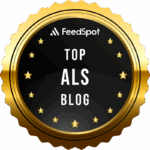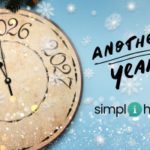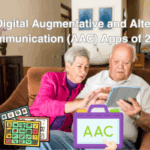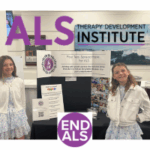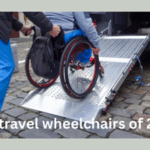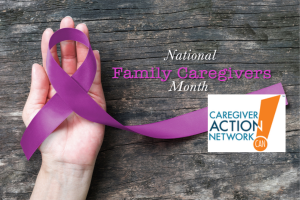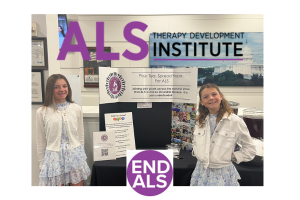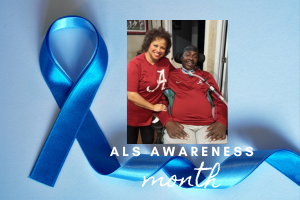During ALS Awareness Month, we interviewed Leah Stavenhagen who founded Her ALS Story.
Hello, SimpliHere community members!
It’s ALS Awareness Month, and although we’re dedicated to raising awareness of ALS and other diseases all year long, we thought this month-long awareness event is a great excuse to profile one of our favorite ALS warriors, Leah Stavenhagen.
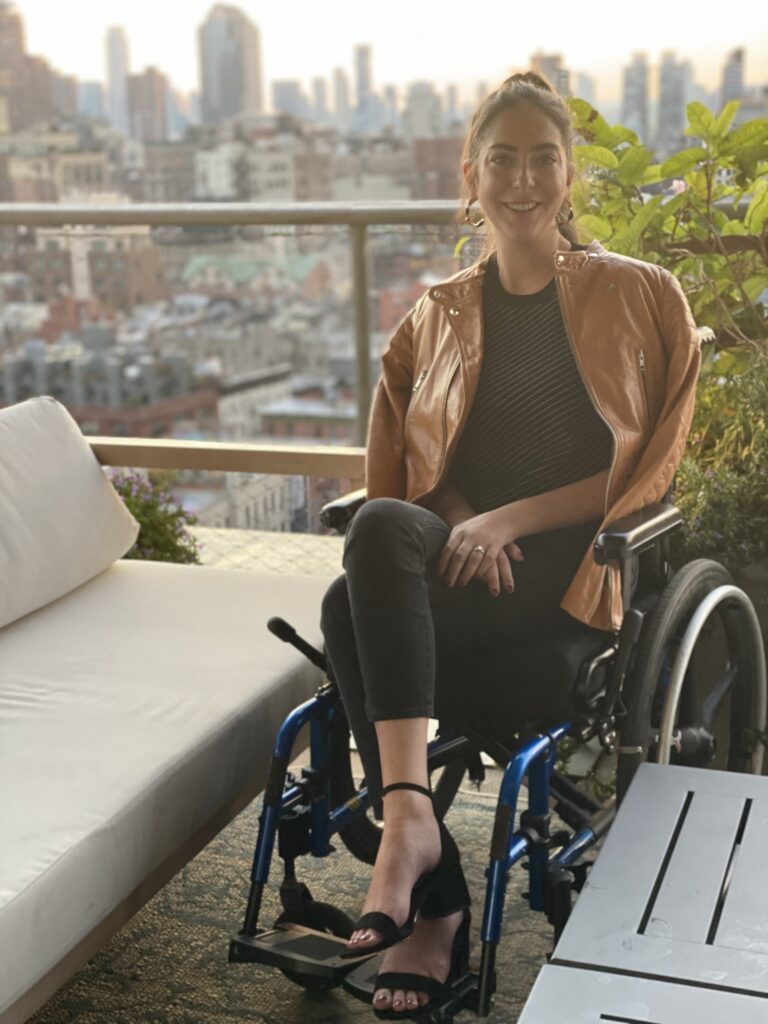
Leah is the founder of Her ALS Story, a nonprofit organization that has created a network for young females diagnosed with ALS, like Leah was at the age of 26. Her ALS Story provides a safe, welcoming, and supportive space for young women who are living with ALS. In addition to providing a network of women with shared experience, Her ALS Story also strives to raise the profile of the disease’s impact on people of all ages and to galvanize support for people alive today with ALS as well as future patients through advancing research.
We hope you enjoy our conversation with Leah and are inspired to support the group — or perhaps, if you are a young woman, even join.
Leah, can you tell our readers a little bit about yourself, your ALS diagnosis, and how you are living today?
Sure! I’m Leah, and I was diagnosed with ALS when I was 26, back in 2019. I was living in Paris at the time, finishing up a master’s degree, and getting started with a career in management consulting. I didn’t even know what ALS was when I was diagnosed. I thought I was tripping and falling occasionally because, worst case scenario, I’d need surgery on my foot. I have no family history, and neurodegenerative disease wasn’t even on my radar. It came out of left field.
Fast forward a bit. My disease progressed pretty quickly; it felt like it moved up my body. Within a year, I was dependent on a wheelchair, and starting to lose strength and agility in my arms. Breathing was starting to be compromised, as well.
Since my disease was progressing quickly, I was fortunate to be included (along with a handful of other ALS patients) in what is called an “expanded access program” out of Columbia University. Through the program, I received a novel treatment, a monthly infusion, that is actually moving through clinical trials today. Although I have not been able to take that drug for about two years now, I was very privileged to have access to it because it did feel like it slowed down my disease progression. It gave me something to feel hopeful about — and provided hope for my family, too.
All of this to say that I shifted gears from living and working in Paris to spending significant amounts of time in New York City, to be closer to family for help and to be part of this expanded access treatment program. This move gave me the opportunity to be more involved in advocacy, too.
How did you get involved with advocacy and eventually found Her ALS Story?
In 2021, I got in contact with a group called “I AM ALS,” and I met Lori Andre, who is such a rockstar in the ALS space. She said, “Hey Leah, I know you were recently diagnosed and feel isolated by this disease; I’d love to help you shift the focus to younger women living with this disease.” That lit a fire under my butt to start something.
So that spring, there was a call for story submissions to find other young women with similar experience, and about 10 women responded. In April of 2021, we started Her ALS Story. It’s already been three years, which is kind of crazy. It’s totally a grassroots effort. It’s run by me, alongside a handful of other impressive women living with ALS. It’s all volunteer-based. We’ve grown from about 10 to over 120 women today, and members are located around the globe, predominantly in North America, but we also have women in Singapore, Sweden, Russia, Brazil … so it is expansive in that way.
What are the goals of Her ALS Story?
We have a two-pronged goal. One is the more public facing side; we want to say, “Hey world, hello, there’s a stereotype of ALS being a disease of older people, but that’s not true.” This is not just me, and this is not just a handful of people — there are so many younger women living with ALS. By putting our voices and faces together, we can hopefully raise awareness and raise more dollars to go to research, and eventually produce better, more effective treatments for patients like us. Then fundraising is the other part of our public-facing goal, which we facilitate through our website and social media efforts.
The other prong is this special community we’ve been able to build, that’s led by biweekly zoom calls we host, and a very active WhatsApp community. We share advice about daily living, relationships, recipes … to ALS news … to everyone’s favorite reality TV show. It’s a very active group of chatty friends, talking about life. Some of it is ALS-focused and some of it is not.
We have criteria to join the group. It helps us create these bonds, between young women who are in a similar stage in their lives. Members are generally diagnosed before the age of 35. But we have a little wiggle room there; we are as inclusive as we can be. Most members are in their 30s, but we have a few who have had ALS for longer than 10 years, so they’re a bit older. We also have members who are as young as 20.
I’m guessing caregivers, partners, and family members are also important to many of your members, considering their age, right?
We are primarily focused on the women living with ALS, but what has grown out pretty naturally from what we’re doing is a mothers’ group, for the mothers who often play a caregiving role. They are often in contact, and that’s really special. There’s also a group of spouses, but they don’t lean on each other too much.
Similar to the bond that HAS members share, I think it is incredibly valuable for our loved ones to be in contact with others who are on the same playing field. This can make certain steps with ALS less scary for everyone.
For example, the step of finding a caregiver outside of family, through an agency or someone from the outside world, can be a really scary step. You are inviting a stranger into your home and your life. Nonetheless, this can be crucial because professional caregivers can preserve partner and family relationships, help someone maintain dignity, and just improve everyone’s quality of life. To be in contact with others who have already done that can be really helpful.
Someone who can say, “You know, my caregiver is incredibly helpful and has improved my life so much. I have more patience for my spouse, etc.” Or someone in our group might say, ‘I’m thinking about finding a professional caregiver to help,” and the group would say, “Here’s a list of questions that were super helpful to me when I was looking for the right person.” That type of information and resources from a trusted, known person can really help you make that next step.
What is happening with Her ALS Story that you are most excited about?
I think the most exciting aspect of this group is our annual retreat. It’s our time to feel normal, and hang with our friends. This year, we will have our third retreat. The first was in Madison, Wisconsin; last September it was in West Falmouth, on Cape Cod, and we’re going to be back on the Cape this year, from September 11 to 15.
This year we will be 40 women, coming together in-person with caregivers, friends, and other volunteers and helpers. It’s a pretty big undertaking to get this many women together at the same time and in an accessible space. It’s like planning our own wedding! The retreat will include tons of beach wheelchairs so we can really spend time at the beach, special meals together, some spa services. Compassionate Care ALS is another organization in the ALS space, and they have been a great partner, helping to orchestrate equipment loans and getting people there. One of our members is coming from Sweden, and it will be her first time in the U.S.!
Our goal is to fundraise to cover everything once someone arrives at the retreat. So airfare, train ticket, gas money, participants cover themselves, but once they get to the airport or station, we want to cover local transportation, hotel rooms, meals. That’s because we want it to be accessible to as many people as are interested. The expectation is that to participate in the retreat, you are active in the group — participating in conversations, etc. — but we don’t have strict guidelines. It’s pretty natural that the people who want to attend are the more active members.
That sounds like a fantastic and meaningful event. Looking forward, what are your other goals for Her ALS Story?
We’re pretty happy with where we are, but of course we want to continue to build resources to support our women. We are thinking about putting a formal mentorship program in place, so that newer members can be paired with a seasoned group member, a mentor to help and give context. It can feel overwhelming when you’re first diagnosed and then also when you first join the group. The idea is to give newer members someone approachable, who they can turn to, to ask questions one-on-one.
Externally, we also strive to take advantage of as many of the opportunities as we can to get the message out there that ALS research needs better funding and that it impacts women of all ages. In terms of fundraising, right now, our fundraising is predominantly underwriting the annual retreat, and we direct anyone who reaches out about supporting at a level beyond our retreat-related expenses to other well-established organizations that specifically focus on research funding. We direct our generous donors who wish to support research to go to one of those other established channels.
If a younger woman living with ALS wished to join the group, how would they go about doing that?
We are always happy when a young woman living with ALS finds us and wants to get involved! Someone can email us or contact us on social media. We send out a short survey to better understand that person and make sure it makes sense for them to join the group, and then if it does, we’re good to go.
About SimpliHere
The mission of SimpliHere is to ensure efficient care and peace of mind for caregivers and their patients with neurological conditions that impact communication and mobility. Joanna Rosenberg founded SimpliHere to address communication gaps between caregivers and patients. Her personal experience when her mother lived with ALS exposed the challenges of communicating and understanding basic needs, as well as managing daily tasks. Download SimpliHere today!
